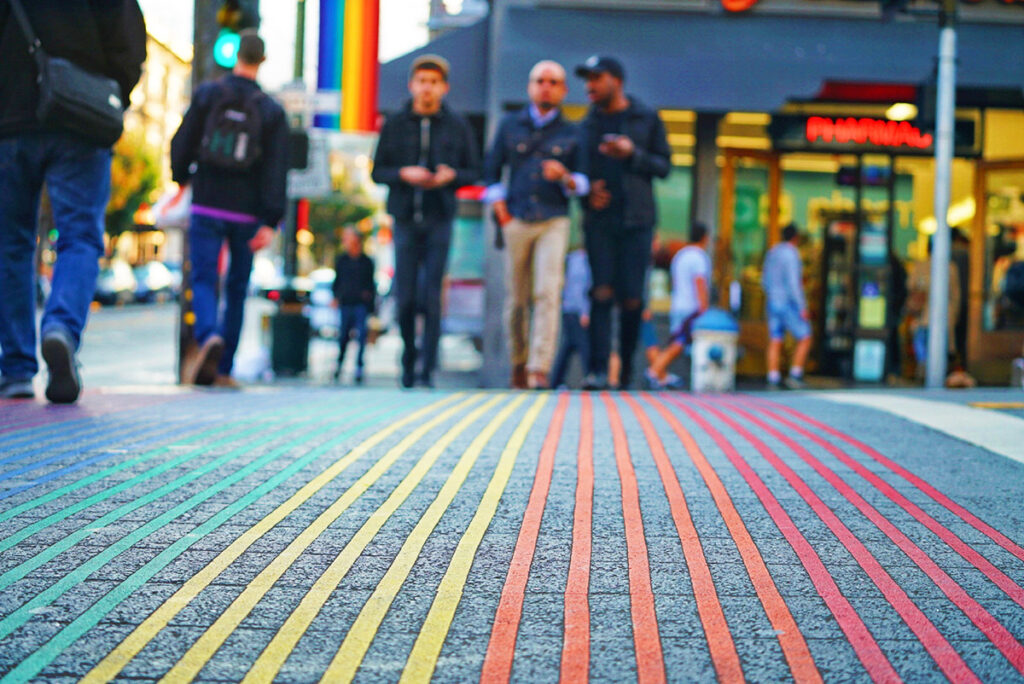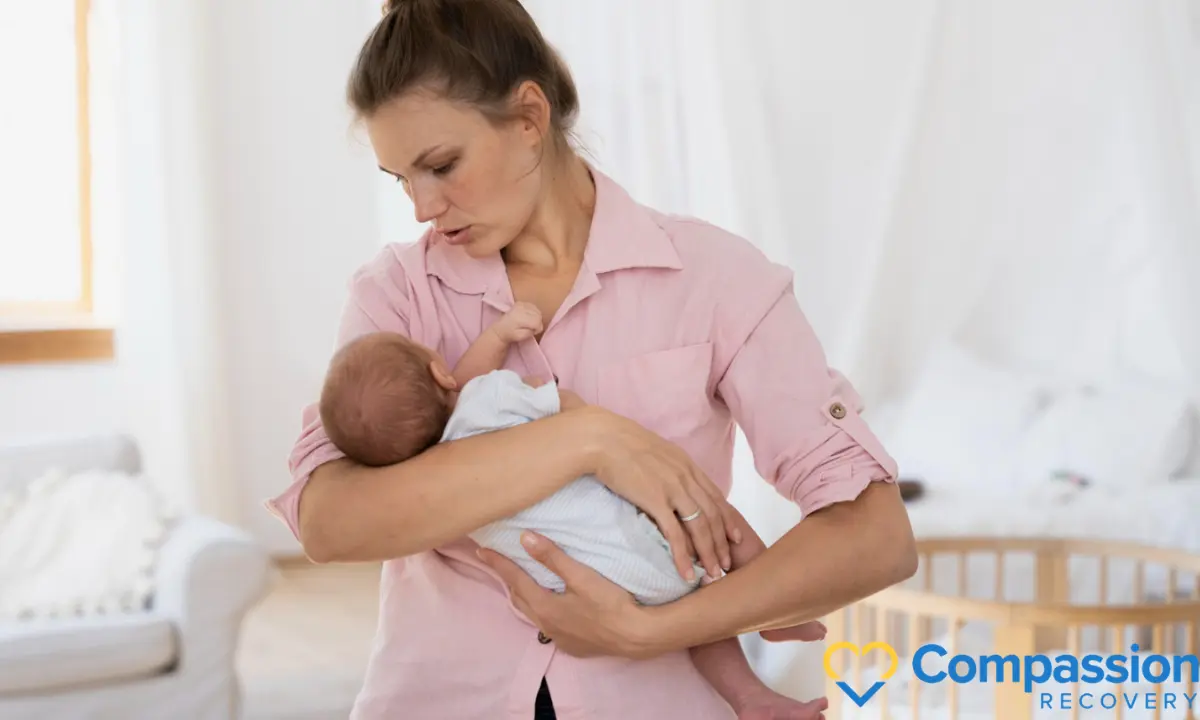For millions of Americans, mental health issues are a prevalent part of life. In fact, 26% of Americans, or 1 in 4, will suffer from a mental health disorder in their lifetime. And, in any given year, 8.3% or roughly 21 million people will have a diagnosis for a mental health disorder. As bad as those numbers sound, persons who are not straight suffer from significantly worse instances of mental health problems, with higher ratios of anxiety, depression, suicidal ideation, substance abuse, and addiction. In fact, while 1/4th of the general population will have a diagnosed mental health disorder in their lifetime, 60% of individuals in the LGBTQ+ community will have the same diagnosis. That’s a more than double increase in the percentage of people suffering from mental health problems.
The LGTBQ+ community is vulnerable to mental health problems because of stress, social stigma, and trauma. At Compassion Recovery, we understand that the interactions between sexuality and gender and modern society can greatly impact mental health. Further, treating those mental health problems means understanding the complex and personal situations contributing to those mental health problems and treating them with compassion, understanding, a personalized mental health program designed to meet those needs.
The LGBTQ+ Community and Mental Health
An estimated 60% of LGBTQ+ community experience mental health problems at any given time. Those include depression, anxiety, suicidal ideation, substance abuse, eating disorders, and many other mental health problems. Some of the most significant include:
- Depression and Anxiety – LGBTQ+ individuals are at an increased risk for depression and anxiety disorders. Here, factors like social stigma, discrimination, minority stress, internalized homophobia and transphobia, bullying, and difficulty finding acceptance and support play major roles. However, the U.S. Census Bureau shows that about 35% of non-LGBT people aged 18-29 experience symptoms of depression and anxiety vs about 61% of LGBTQ+ people. At age 65, that drops to 14% for non-LGBTQ persons and 19% for LGBTQ+ persons.
- Suicide and Self-Harm – Persons on the LGBTQ+ spectrum(s) experience significantly higher rates of self-harm, suicidal ideation, suicide attempts and suicide than non-LGBT persons. With 47% of LGBTQ+ persons resorting to self-harm over their lifetime vs 23% of non-LGBTQ+ persons, those differences are also significant.
- Substance Abuse – LGBTQ+ individuals are significantly more likely to abuse substances and therefore to experience substance use disorders than the general population. This is likely a result of using substances as a coping mechanism for poor self-esteem, stigma, and lack of support, however, it requires significant extra attention in treatment.
- Gender Dysphoria – Transgender individuals often experience dysphoria, or a disconnect between gender identity and assigned gender. This can result in significant distress and trauma, requiring specialized care and support.
Anyone who is on the LGBTQ+ spectrum is likely to have experienced significant instances of what is known as “minority stress”. This refers to stress from stigma, discrimination, and lack of social acceptance, which can result in trauma, avoidance, and social ostracization. This may require mental health treatment on its own to ensure quality of life.
Get your question answered now.

Why are the LGBTQ+ Community More Vulnerable to Mental Health Problems?
If you’re not straight or not cisgender, you’re at increased risk of developing a mental health disorder and even of experiencing mental health problems. Why? Most studies indicate that it has to do with increased risks associated with trauma, isolation, domestic violence, and social stigma and isolation. That’s true even for people from accepting families, because those same individuals still experience these things out in the world.
However, early childhood and trauma in the home may have the worst impact. The Adverse Childhood Experiences links trauma experienced before the age of 16 to increased vulnerabilities to mental health problems including depression, poor social behavior, depression, anxiety, PTSD, panic disorders, and bad coping mechanisms. Factors like stigma, family rejection, and hiding personality, gender, and sexuality can have a major impact on developing minds. That becomes worse when it involves internalized homophobia, domestic violence, and abuse.
Being LGBTQ+ means:
- Higher risks of domestic violence
- Exposure to homophobia, stigma, and family rejection
- Social isolation and stigma
- Hiding critical aspects of personality, gender, and sexuality
- Increased risk of domestic violence, sexual assault, assault, and homelessness
These also result in increased risks of low self-esteem, self-harm, suicidal ideation, which all make it more difficult to cope with stress and other mental health problems.
Treating Mental Health Problems in the LGTBQ+ Community
The LGBTQ+ community not only faces increased risks to mental health problems but also decreased chances of getting good treatment for those problems. For example, some 70% of participants in a study reported stigma and homophobia from staff in mental health treatment programs, with as many as 24% sometimes being denied care at all. As a result, many simply don’t seek out mental healthcare at all, despite the need for significant and personalized treatment. At Compassion Recovery, we approach each person with the specific care they need to uncover underlying problems, to treat causes rather than just symptoms, and to give each person the respect and care they need.
- LGTBQ+ Focused Programs – Attending an LGBTQ+ specific program reduces risks of bigotry and bias during the treatment, so that you can get the support you need.
- Personalized Care – Every program is tailored around the individual, meaning you get support for your actual problems, with approach, therapies, and counseling built around your specific needs.
- Support and Counseling – Having someone to talk to, to get emotional support from, and to talk about life, gender, and sexuality is an important part of mental health. That’s why it’s always part of the program that you have access to people you can talk to.
If you or a loved one is struggling with mental health, it’s important to reach out and get help. Having a mental health treatment program that can approach your mental health from the perspective of the LGBTQ+ community, that can understand stigma, prejudice, violence, and trauma, and that can build a program around those needs is also important. Millions of LGBTQ+ youth and adults struggle with mental health. But, there is help and it can help you to recover, to build healthy coping mechanisms, and to build a stable foundation so that you’re better able to cope in the future.
If you need help, contact the team at Compassion Recovery to learn more about our LGBTQ+ focused programs.
If you or a loved one needs help with mental health treatment, drug rehab, or alcohol rehab Compassion Recovery Center is here to help. Contact us to learn more about our LGBTQ+ focused programs.









